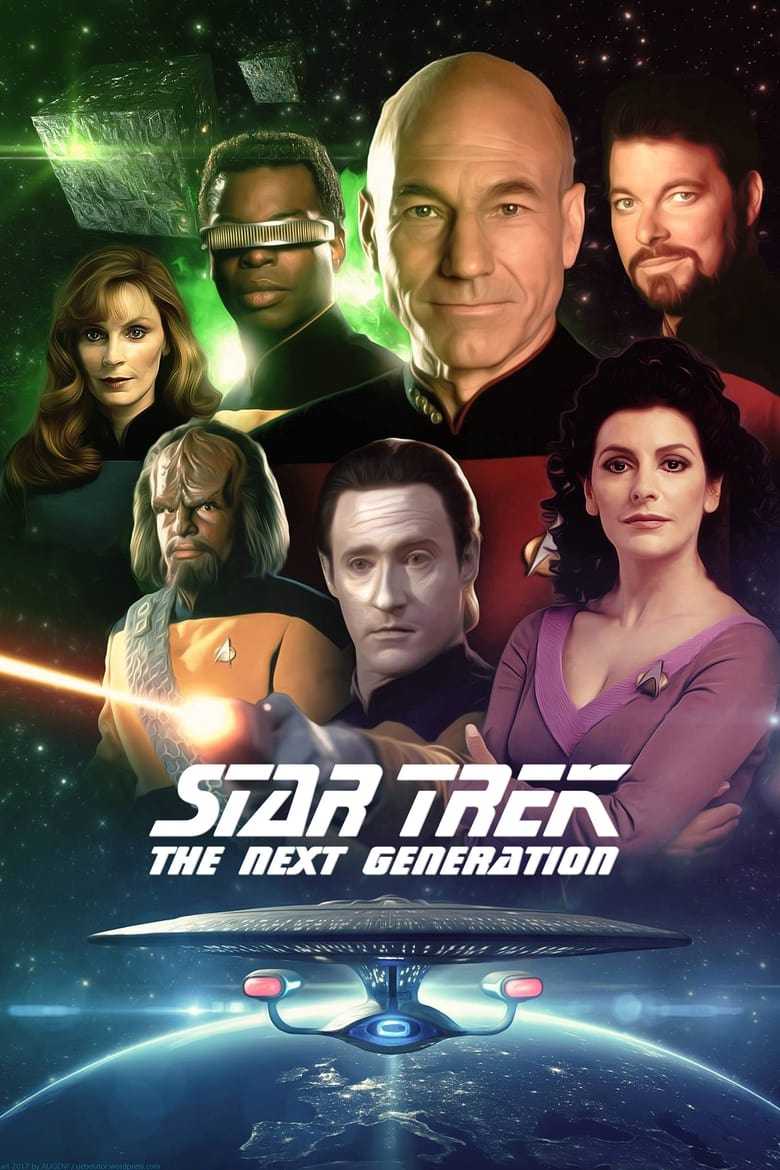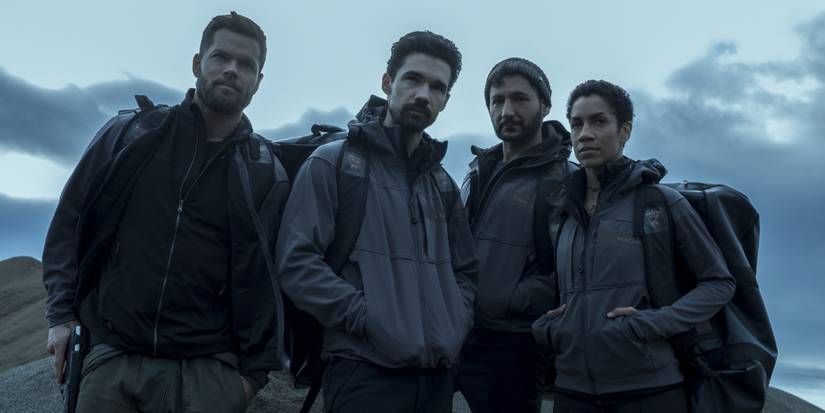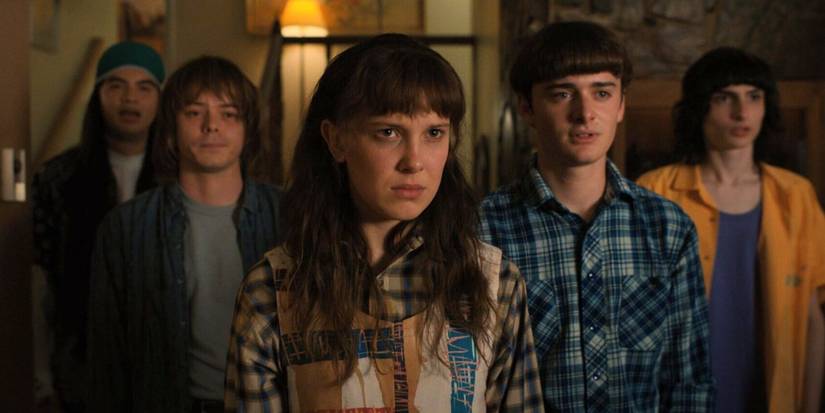I love sci-fi shows because they pull me into another world and, honestly, they are a way for me to escape reality. I still remember watching my first episode of The X-Files late at night, half scared, half in awe, or binging Stranger Things when I should’ve been studying, but could not. These shows became my late-night companions, and little windows into bigger questions about who we are, what we believe, and the kind of future we imagine for ourselves.
The truth is, whenever I watch something, I want to feel extreme emotions and mental stimulation, which I can only get after watching a good science fiction. Though most of such shows do not stay the same throughout. Some start strong but collapse under messy writing, and some fade before reaching their full potential. But a rare few stay sharp from the very first episode to the final scene. That’s why I’ve put together this list of the ten best sci-fi shows that never wasted my time and won’t waste yours. They’re the ones worth binging, start to finish.
10
‘Fringe’ (2008)
Fringe is one of those few sci-fi shows that has walked the tightrope between network accessibility and mind-bending storytelling. At first, it looked like a network attempt to cash in on the X-Files formula with strange cases, a skeptical agent, and a shadowy government program. But across the five seasons, it became one of the most daring sci-fi series. The show’s turning point came when it introduced the existence of an alternate universe, complete with doppelgängers of the main characters.
A big reason the show holds up is its character work. John Noble delivered one of television’s most acclaimed dual performances as Walter Bishop, a brilliant but broken scientist in one world and a ruthless political leader in the other. He has a fractured bond with his son Peter (Joshua Jackson). And their relationship gave the series an emotional anchor that grounded even its most outrageous experiments.
9
‘Battlestar Galactica’ (2004)
At the time when Battlestar Galactica returned in 2004 as a renovation of the 1978 series, no one expected it to become as big as it became. The miniseries pilot showed humanity on the brink of extinction after the Cylons. This plot alone set the tone of the TV show, and it made it one of the smartest and most emotionally devastating sci-fi dramas ever made. Cylons were the machine creations of humans that wiped out almost the entire species. From there, the show gradually unfolded, with its politically charged and character-driven story.
The cast of the show was extremely talented. Commander Adama (Edward James Olmos) and President Roslin (Mary McDonnell) clashed over military control versus democratic principles, while Gaius Baltar (James Callis) blurred the line between villain, genius, and victim. Even the Cylons, originally framed as the enemy, became a mirror for humanity’s own flaws and faith.
8
‘The Expanse’ (2015)
The Expanse took a while to find its audience, but once it did, it redefined what grounded, politically driven science fiction could look like on television. It premiered in 2015 on Syfy before moving to Amazon Prime after a passionate fan campaign. The show built a universe that felt startlingly real with physics, politics, and humanity colliding across the solar system.
This interesting watch is set in a future where Earth, Mars, and the Belt are locked in a fragile balance of power. The TV show mainly showed the idea that space itself is hostile and humans bring their flaws with them wherever they go. The most intriguing thing about the show was the world it built; for instance, the Belters’ Creole language, the Martian military’s iron discipline, and the weary corruption of Earth’s politicians. If you are into extremely detail-driven and complex sci-fi, it is a binge-watch for you.
7
‘Stargate SG-1’ (1997)
Before shared universes became Hollywood’s obsession, Stargate SG-1 was the IT sci-fi mythology. The show was spun out of Roland Emmerich‘s 1994 film and ran for a staggering 10 seasons with a mix of military drama, alien mythology, and pulpy adventure. Along with its expansive storytelling, it sustained a loyal audience for over a decade.
The premise of the show was deceptively simple. The Stargate is an ancient device that is capable of instantaneous travel across galaxies. Soon, it became the US Air Force’s gateway to countless new worlds. But SG-1 didn’t just rely on stand-alone adventures. Its larger story tied the Goa’uld, the Asgard, and other alien races directly to human myths. The beauty of the show was that it could pivot from lighthearted banter to big questions about faith, power, and morality, all the while keeping audiences invested in its characters.
6
‘Stranger Things’ (2016)
Now, who is not aware of Stranger Things? The first time I watched the show, I couldn’t sleep for a week because of the thrilling and mysterious kidnapping of a little boy in a world full of Demogorgons. Right after its release, it became an instant hit and reshaped the streaming landscape. The Duffer Brothers series mixed 80s nostalgia with supernatural sci-fi horror. But what kept the audience hooked was its emotional core and the friendship between a group of kids.
The story is set in Hawkins, Indiana, and features six friends who are fighting back against a government cover-up and terrifying creatures of the Upside Down. The best part of the show was its synth-heavy soundtrack, Eleven’s (Millie Bobby Brown) telekinetic powers, and Steve Harrington (Joe Keery), who evolved into one of the TV’s most surprising fan favorites. Stranger Things is a show that consistently delivers without burning out the viewers. Netflix gave Duffer the space to map out this story, and it shows, because even with longer gaps between seasons, anticipation only grows. Its final chapter is right on the horizon and will be available to stream in November.
5
‘Firefly’ (2002)
Few shows have burned as brightly, and briefly, as Firefly. Joss Whedon’s 2002 “space western” ran for just one season before Fox pulled the plug, yet in that short time, it carved out its place as one of the most beloved cult series.
Though it was canceled before its time, fan demand was so fierce that Universal revived the story in 2005’s Serenity. The show had a mix of humor, moral grayness, and sharp dialogues that make everything look real. The premise was simple but original. Humanity had spread to new solar systems, and life on the outer planets was harsh and lawless. The crew of the ship Serenity was smugglers and outcasts trying to survive while avoiding the control of the powerful Alliance. Their struggles were small in scale, e.g., jobs, debts, betrayals, but always tied to the bigger fight between freedom and control.
4
‘Black Mirror’ (2011)
Black Mirror didn’t need any starships or aliens to unsettle its audience. The horror of technology is terrifying enough, so the show used just that. It was created by Charlie Brooker in 2011, and the anthology series carved out its unique space in television by telling standalone stories where near-future tech exposes the darkest corners of human behavior. Part of its power comes from its flexibility. Viewers can see episodes shift from the dystopian “Shut Up and Dance” to the tender “San Junipero” to the outright horrifying “White Bear.” Yet, the throughline is always the same, which is that technology is never neutral.
Black Mirror stood out with its creative writing and eerie plausibility and became a shorthand in cultural conversation. The phrase, “this feels like a Black Mirror episode”, is now a part of everyday language and memes. The series expanded its reach globally after moving from Channel 4 to Netflix and attracted high-profile directors and actors like Bryce Dallas, Howard, Jon Hamm, and Miley Cyrus.
3
‘The X-Files’ (1993)
Long before streaming giants turned serialized sci-fi into appointment viewing, The X-Files was already a phenomenon. The show is directed by Chris Carter and follows FBI agents Fox Mulder (David Duchovny) and Dana Scully (Gillian Anderson) as they investigate unexplained cases that involve government conspiracies, extraterrestrial encounters, and classic monster-of-the-week storytelling.
Fans could jump in for a one-off horror gem like “Home” or “Ice,” then get pulled deeper into the mythology arc that pitted Mulder (David Duchovny) and Scully (Gillian Anderson) against shadowy forces. It was also the best part of the show. Mulder’s relentless belief in paranormal activities clashed perfectly with Scully’s scientific skepticism, and their relationship made them one of the most compelling duos TV has ever seen. The show’s impact also went far beyond its run. It inspired a generation of genre writers and spawned spin-offs like The Lone Gunman. Even with uneven later seasons, The X-Files proved that sci-fi on network TV could be creepy, cerebral, and culturally dominant all at once.
2
‘Doctor Who’ (1963)
Doctor Who is the longest-running sci-fi TV show in history, which first aired in 1963, and is still going strong today. Its secret is the Doctor, a Time Lord who can regenerate into a new body when near death. This idea allowed the show to refresh itself for new actors with the same spirit. Over the decades, the Doctor has been played by many talented actors, each bringing their own personality, from Tom Baker‘s eccentric charm to David Tennant‘s intensity to Jodie Whittaker‘s groundbreaking role as the first woman in the part.
The story follows the Doctor traveling through time and space in the TARDIS, a police box that is bigger on the inside. Each adventure can be different: some are set in the past, others in the far future, and many on alien planets. The show has introduced some of sci-fi’s most famous villains, including the Daleks and Cybermen, and it has survived for six decades because, at its core, it’s about hope and discovery. Few sci-fi shows can match its reach or its influence.
1
‘Star Trek: The Next Generation’ (1987)
No other sci-fi series has carried the weight of an entire genre on its shoulders and succeeded quite like Star Trek: The Next Generation, and that’s exactly why it topped our list. When the OG sci-fi show premiered in 1987, expectations were impossibly high. But instead of being a footnote to the original, TNG became the definitive Star Trek for a new era and also the benchmark against which all other sci-fi television is measured.
The series followed Captain Jean-Luc Picard (Patrick Stewart) aboard the starship Enterprise-D, leading missions to explore unknown worlds, negotiate peace, and confront threats that tested moral and ethical boundaries. Instead of only leaning on action, TNG built stories around different ideas, and didn’t just incorporate sci-fi. It had philosophy, rawness, and some very thoughtful nuances throughout. Even the alien encounters would force you to reflect on what it means to be human.

Release Date
1987 – 1994-00-00
Network
Syndication
Showrunner
Gene Roddenberry
Writers
René Echevarria, Maurice Hurley, Richard Manning, Melinda M. Snodgrass, Tracy Tormé, Hannah Louise Shearer, Stuart Charno, Ira Steven Behr, Sara B. Cooper, Peter Allan Fields, Herbert Wright, Frank Abatemarco, Burton Armus, Hilary Bader, Morgan Gendel, David Kemper, Michael I. Wagner, Philip LaZebnik, Robert McCullough, Susan Sackett, Nick Sagan, Fred Bronson, Robert Hewitt Wolfe, Sam Rolfe























